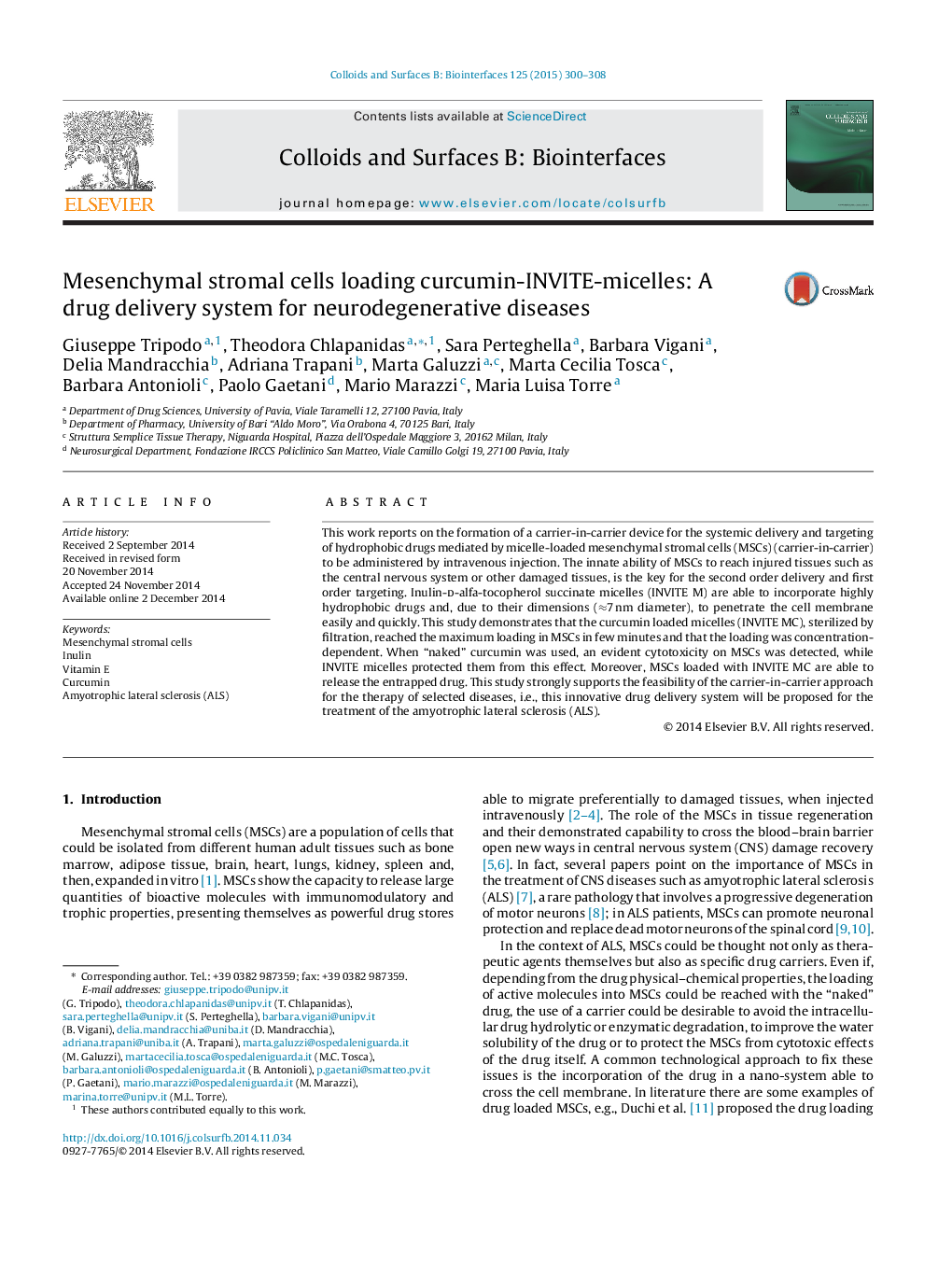| Article ID | Journal | Published Year | Pages | File Type |
|---|---|---|---|---|
| 599597 | Colloids and Surfaces B: Biointerfaces | 2015 | 9 Pages |
•A new (drug) carrier-in-carrier system has been developed.•Mesenchymal stromal cells (MSCs) effectively loaded curcumin bearing inulin–vitamin E nanomicelles.•The inulin–vitamin E nanomicelles protected the MSCs from curcumin toxicity.•The curcumin-loaded-nanomicelles have been fully released from MSCs.
This work reports on the formation of a carrier-in-carrier device for the systemic delivery and targeting of hydrophobic drugs mediated by micelle-loaded mesenchymal stromal cells (MSCs) (carrier-in-carrier) to be administered by intravenous injection. The innate ability of MSCs to reach injured tissues such as the central nervous system or other damaged tissues, is the key for the second order delivery and first order targeting. Inulin-d-alfa-tocopherol succinate micelles (INVITE M) are able to incorporate highly hydrophobic drugs and, due to their dimensions (≈7 nm diameter), to penetrate the cell membrane easily and quickly. This study demonstrates that the curcumin loaded micelles (INVITE MC), sterilized by filtration, reached the maximum loading in MSCs in few minutes and that the loading was concentration-dependent. When “naked” curcumin was used, an evident cytotoxicity on MSCs was detected, while INVITE micelles protected them from this effect. Moreover, MSCs loaded with INVITE MC are able to release the entrapped drug. This study strongly supports the feasibility of the carrier-in-carrier approach for the therapy of selected diseases, i.e., this innovative drug delivery system will be proposed for the treatment of the amyotrophic lateral sclerosis (ALS).
Graphical abstractFigure optionsDownload full-size imageDownload as PowerPoint slide
